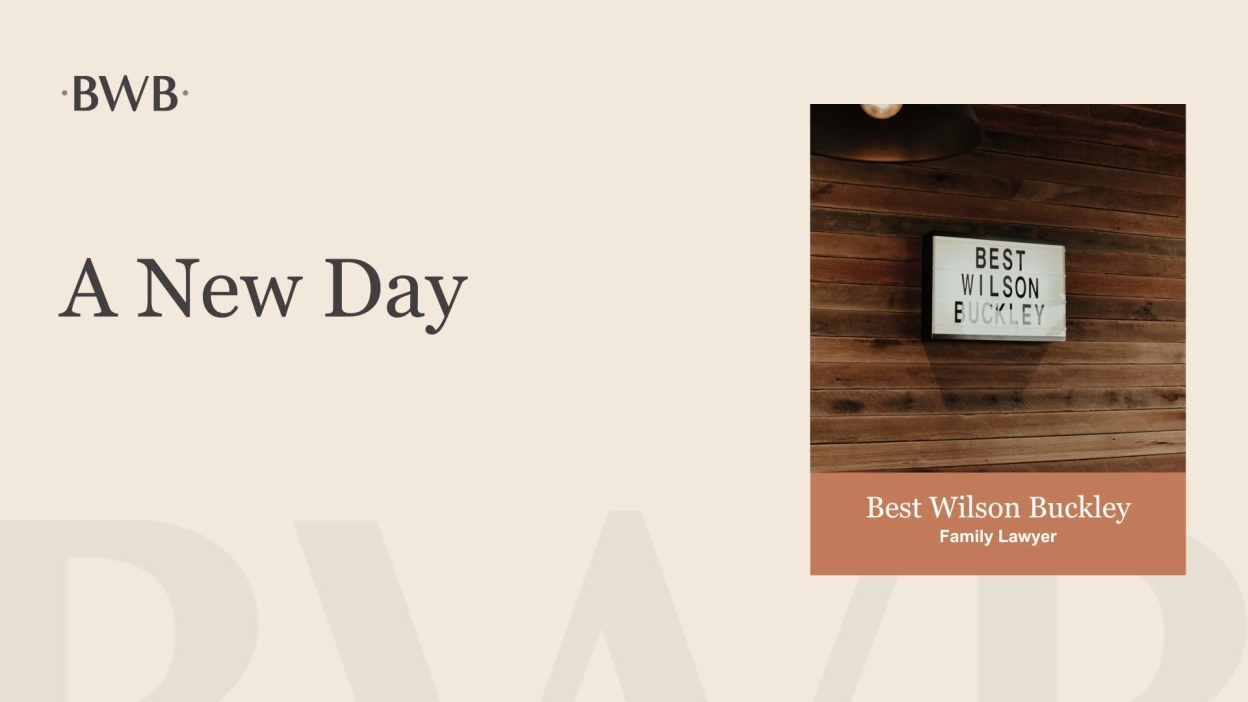A New Day
By Best Wilson Buckley Family Law |31 August 2021 |General-Articles

Welcome to a brand new day, and the most fundamental shift for decades in the manner in which our legal system manages family breakdown and the conflict that emanates from such an inherently personal experience.
On paper, the environment could not be more optimal. Resourcing is good, and the rules and practice directions whilst very new, are clear. The obligations imposed by the Rules, and the likely appetite that Registrars and Judges will have for compliance with those rules and lawyers demonstrating a clear competence in the practice of family law, should allow for a more optimal experience for every litigant. By virtue of the pre-action obligations imposed upon parties, hopefully, it will also add up to greater resolutions without the filing of proceedings. Whilst the above is so exciting, there is a key component to achieving optimal resolution which the Court can only influence not control – and that is the quality and ethic of the lawyers practising in this complex area.
More than ever, it is evident that the practice of family law should be the domain of specialist practitioners, whom devote a significant proportion if not all of their professional endeavour to this area. The Family Law Act now runs to a total of 780 pages. The knowledge required to successfully navigate both effective negotiation, the management of a client’s expectations and achieving the most optimal outcome in litigation is broader than ever, and a challenge for even those that only work in this area, and have already achieved Accreditation.
Quite independent of the requirements of the new Rules, case management protocols, ethical obligations and the family law itself – practice in this area demands a capacity to establish robust, trusting relationships with other practitioners (which requires you to be ethical and trustworthy by implication) and a capacity to quickly distil the issues and navigate the emotional needs and drivers of both your own client and the other party. This is a big job and made frustratingly near-impossible by the imposition of a lawyer whom doesn’t understand the way the system functions, doesn’t understand how a Court would determine a dispute and won’t recognise and communicate in relation to the issues and emotional drivers which are actually important.
It never ceases to amaze that there are lawyers whom are not focussed on the impact of the litigation conflict upon the family dynamic and by implication the capacity of the two parties to co-parent in the future. The research is abundant and clear. Parental conflict is toxic for children and doesn’t do much for each parent either. That message needs to be one of the first that is conveyed to a new client. But the obligation is bigger than that – as lawyers, we need to be actively encouraging our clients to adopt an approach to communication and issues which defuses conflict and improves relationships.
We then need to actively pursue obtaining instructions from a client which are consistent with reducing conflict, not increasing it. Without doubt, there are many, many good family lawyers that do this, day in and day out – what is also clear is that there is increasingly less tolerance from the profession and from the Court for lawyers that are not focussed on the greater context in which the conflict is operating.
When both lawyers have a specialisation, a commitment to the bigger picture and a clear focus, add in a Court that finally has the resourcing, clarity and clear boundaries to avoid unnecessary confusion and delay, and we have a recipe for significantly better outcomes for families in conflict. It truly is a brand new day.